A Finnish family falls apart after the parents’ divorce and the son comes out as gay in Mikko Makela’s directorial debut.
Leevi (Janne Puustinen) has returned to the Finnish countryside on a short break from graduate school in Paris to join his father, Jouko (Mika Melender), at their family cottage by the lake to do some renovations. From the get-go, the holiday feels forced, as if Jouko and Leevi haven’t seen each other in a while and Jouko invited his son out of a sense of obligation. Leevi rolls his eyes at pretty much everything that comes out of his old-fashioned father’s mouth, but he also takes it in stride, as though he pities the man in his stayed ways, but now that he has moved away, he’s done trying to change his father and just wants to live his own life.
The work that needs to be done to the house is a little more advanced than the two are capable of, so Jouko calls for a carpenter to help them. Enter Tareq (Boodi Kabbani), a man about Leevi’s age who has come to Finland from Syria seeking asylum. Jouko is called away on work and leaves the two men at the cottage to continue working. Leevi and Tareq spend the rest of the day working, and during their breaks on the dock and later in the sauna, they have long, revealing conversations. The night ends with the two sleeping with each other, and the remainder of the film is Leevi and Tareq trying to hide their budding love affair from Jouko.
The film is pretty barebones. The setting never leaves the lake, and the three men are the main characters. It is very slow paced, with some very long takes of dialogue, which make it very much like a play. The sex scenes, too, are quite long and elaborate, cluing the viewer in on just how Leevi and Tareq’s relationship is developing in that department.
What boggled me was when Jouko comes back up to the cottage, Leevi and Tareq suddenly skitter to obscure their tryst from him. There wasn’t enough buildup to explain why they needed to hide their relationship from Jouko. In the first scene, it’s established that Leevi is openly gay and his father knows. Although Jouko may not be a Pride-flag waving dad, he also doesn’t come off as someone Leevi needs to deflect any overt signs of his sexuality. I kept thinking maybe it would be a neat tweak if Leevi was hiding his affair with Tareq not because of his father’s homophobia but for Leevi’s internalized homophobia. Not even that was explained, and I kept scratching my head about what all the fuss was about.
Maybe there was something lost in translation, but Jouko’s line early on suggesting Leevi try dating women paints him as out of touch, not an all-out gay basher. So if Leevi’s hiding his new lover behind his father’s back is just to avoid an awkward conversation, then that could have been made clearer. In fact, that actually would have been a much better social commentary than the film’s vague declaration that small-town life is hard for gays because they can’t be as gay as they want to be.
The next possible point of conflict could have been Tariq’s nationality, but the film doesn’t even fully paint Jouko as Islamophobic either. Actually, it feels like Makela’s script tries so hard to live by the dictum of “show, don’t tell” that it ends up failing to give us a conflict to grasp onto.

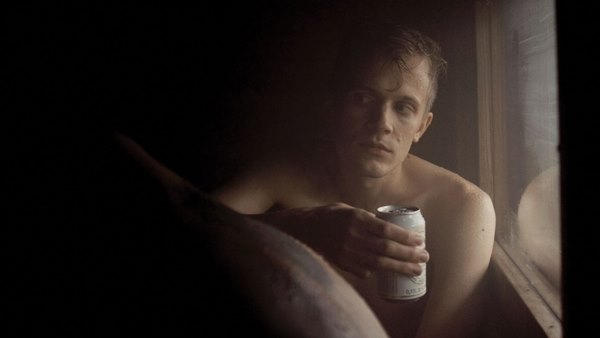
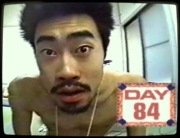

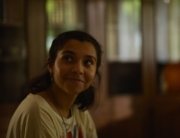
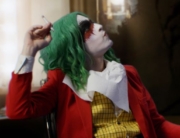
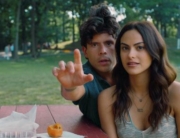
the father makes it quite explicit that he has no fondness for the syrian labor he’s hired so his son is following the advice of discretion being the better part of valor. and it’s pretty clear that the son was right to be discrete about his relationship because the homophobic racist father has a terrific tirade about their relationship.
i love this movie and i love even more that it was made. every gay movie can’t be about aids or teenagers. it’s so freshing to see a movie about two adult men who want to explore each other emotionally and sexually despite the problems they face.
the movie has an emotional honesty that many films featuring gay men don’t aspire. it’s wonderful to watch two men trying to communicate despite the fact that english is not their first language. it’s obvious that the two men want love and want to love.